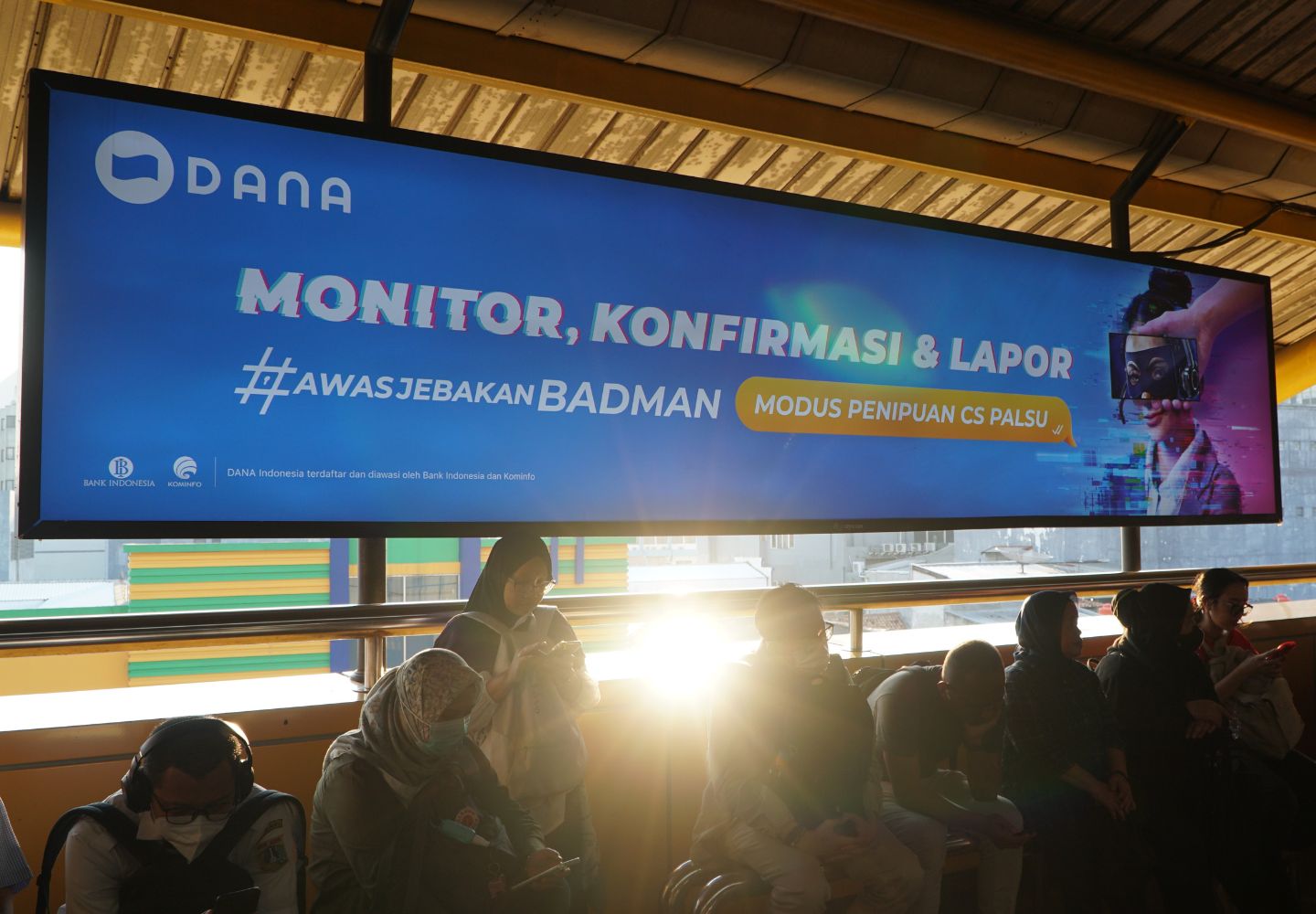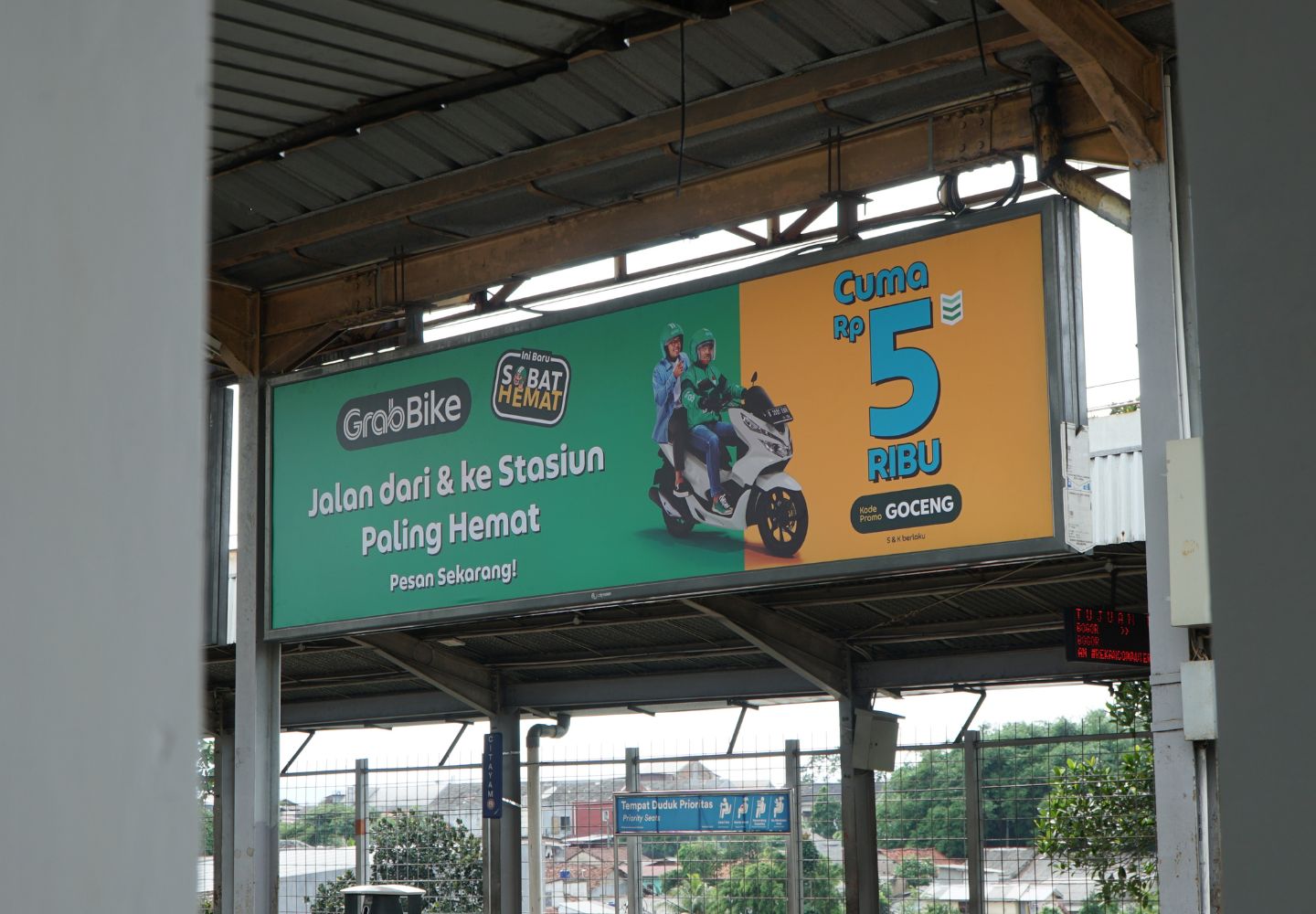In the midst of the strong digital current, a brand's fate is now largely determined by one thing: algorithms. Brands compete to appear on timelines, fighting for attention among millions of pieces of content that flash by every second. However, algorithms are never static. Today your content goes viral, but tomorrow it disappears without a trace. Changes to display systems, platform policies, and fleeting trends can bury the visibility that was built with great effort.
The main problem is consistency. In the digital world, visibility is not only expensive but also uncertain. Even if your ad budget has skyrocketed, there's no guarantee that your audience will actually see or remember your brand.
The question is, what if there was a medium that allowed your brand to be present every day, without you having to worry about algorithms, airtime, or click-through rates? What if there was a way to build brand awareness consistently, measurably, and irreplaceably?
This is where OOH ads at bus stops play an important role, especially at non-BRT stops that are widely spread across the city and are part of the daily routines of the urban public. Unlike digital ads that can be scrolled past or skipped with a single click, ads at bus stops are a real part of public space.
Non-BRT bus stops are usually located on main roads, near business centers, educational areas, and residential neighborhoods. This means the ads there are seen not only by public transport users, but also by pedestrians, motorcyclists, and private car drivers who pass by the same spot repeatedly every day.
Ads at bus stops are a form of unskippable ads, where people cannot choose not to see them. Whether on the morning commute to the office or heading home at sunset, these ads will always be there, consciously recognized or subconsciously recorded.

One of the biggest advantages of advertising at bus stops is the consistency of exposure. The routes commuters take generally don't change from day to day. Likewise, the bus stops they pass by, the messages they see, and the impact of those messages grow over time.
While in the digital world, exposure is highly dependent on algorithm performance or large budgets for boosting, at bus stops, consistency happens naturally. Your brand will continue to be seen even when you're not adding extra costs for views or sponsored ads.
The more often the audience sees your brand during their commute, the greater the chance of occupying a space in their minds. This is where the concept of top-of-mind awareness begins to work. Slowly but surely, your brand sticks in their memory.
Marketing psychology has long understood the power of visual repetition. When a person sees the same visual elements repeatedly (logos, colors, messages), their brain begins to form a strong association. This is the mere-exposure effect: the more an ad is seen, the more it will be liked and remembered.
OOH ads at bus stops aren't just "seen," they become ingrained. In heavy traffic or while waiting for public transport, the audience's attention can be drawn to the surrounding ads. They might not buy the product right away, but the seed of awareness has already been planted.
And like a snowball, this awareness will grow bigger and bigger. Ads seen every day become a part of the public's visual routine. This is a power not possessed by digital ads, which are fleeting and easily forgotten.
Also read: OOH Media Jakarta: The Most Effective Marketing Strategy in a City with Unmatched Mobility
City Vision serves as a strategic partner for OOH advertising at bus stops, particularly at non-BRT shelters that have been underutilized by brands. With its extensive experience and wide network, City Vision focuses on developing transit media that truly integrates with the rhythm of city life.
City Vision's media is placed in premium locations—not just crowded, but also strategic. These are areas not yet oversaturated with ads, allowing your brand to appear more dominant without competitor distraction. This is a first-mover advantage: appear first, look stronger.
Additionally, City Vision understands the importance of design, visibility, and local context in outdoor media placement. Every spot is developed with a sophisticated branding approach so the brand's message is delivered effectively.

While digital ads are flexible, OOH ads at bus stops have advantages that no online platform can replicate:
They don't depend on airtime or algorithms. Your brand will remain visible, 24/7.
There's no need for keyword bidding or waiting for engagement. Everyone who passes by will see it.
They can't be skipped or closed in 5 seconds. This is an ad that is truly present in the real world.
They support the positioning of brands that want to appear established, professional, and serious about building authority.
City Vision offers all of this through its strategically curated OOH products. This isn't just ad space; it's a high-impact branding medium.
Advantages of City Vision
Unskippable Ads – seen daily by thousands of people without being able to be skipped.
Increased Brand Authority – gives a strong impression that your brand has credibility and a real existence in the public space.
Also read: City Vision: Indonesia’s Leading OOH Company with a Premium & Data-Driven Media Network
In an era where everyone is competing to capture attention through small screens, the real world is becoming a great stage that is being abandoned. Yet, that is precisely the place where a brand can have a real and consistent presence, without depending on algorithms or needing to go viral.
If your audience can see your brand every day, why wait for an algorithm to work?
Now is the time for your brand to switch lanes—from the uncertain virtual world to the bus stops passed by millions of people every day. Build visibility that is stable, strong, and continuously growing.
City Vision is ready to help your brand appear dominant in the public space. Starting today, make non-BRT bus stops the main stage to solidify your brand's name.